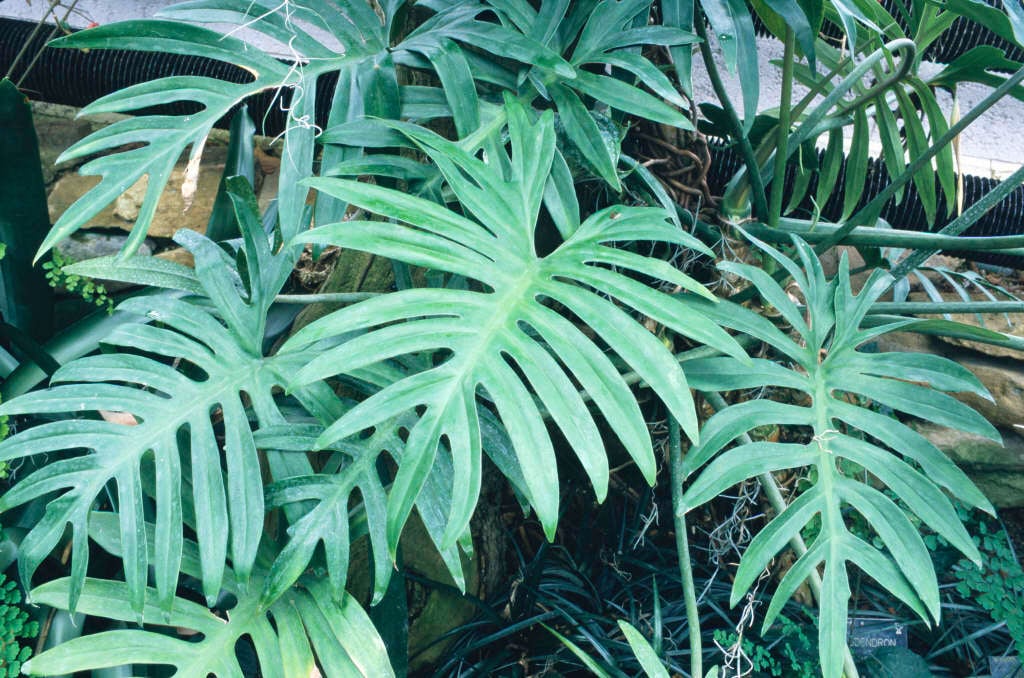Size
Ultimate height
4–8 metresTime to ultimate height
5–10 yearsUltimate spread
0.5–1 metresGrowing conditions
Moisture
Moist but well–drainedpH
Acid, Alkaline, NeutralColour & scent
| Stem | Flower | Foliage | Fruit | |
| Spring | Green | |||
|---|---|---|---|---|
| Summer | Green Pink | Green | ||
| Autumn | Green | |||
| Winter | Green |
Position
- Partial shade
Aspect
South–facing or East–facing
Exposure
Sheltered Hardiness
H1ABotanical details
- Family
- Araceae
- Native to GB / Ireland
- No
- Foliage
- Evergreen
- Habit
- Climbing
- Potentially harmful
- Harmful if eaten, skin/eye irritant/allergen. Wear gloves and other protective equipment when handling Pets: Harmful if eaten, skin/eye irritant/allergen - For further information and contact numbers regarding pets, see the HTA guide to potentially harmful plants
- Genus
Philodendron can be shrubs, trees or climbers, with glossy, leathery, evergreen, simple to pinnately divided leaves, and tiny flowers borne within arum-like white, green or reddish spathes
- Name status
Correct
- Plant range
- S America
How to grow
Cultivation
Grow under glass in a peat-free, loam-based potting compost in bright filtered light with shade from hot sun, mist daily. When in growth water moderately and apply a balanced liquid fertilizer monthly. Water sparingly at other times. See Philodendron and houseplant cultivation for further advice
Propagation
Propagate by seed surface sown at 19 to 24°C in spring or layer in spring
Suggested planting locations and garden types
- Patio and container plants
- Low Maintenance
Pruning
Pruning group 11 in spring
Pests
May be susceptible to scale insects and glasshouse red spider mite
Diseases
Generally disease-free
Love gardening
Sign up to receive regular gardening tips, inspiration, offers and more
View our Privacy Policy
Get involved
The Royal Horticultural Society is the UK’s leading gardening charity. We aim to enrich everyone’s life through plants, and make the UK a greener and more beautiful place.
